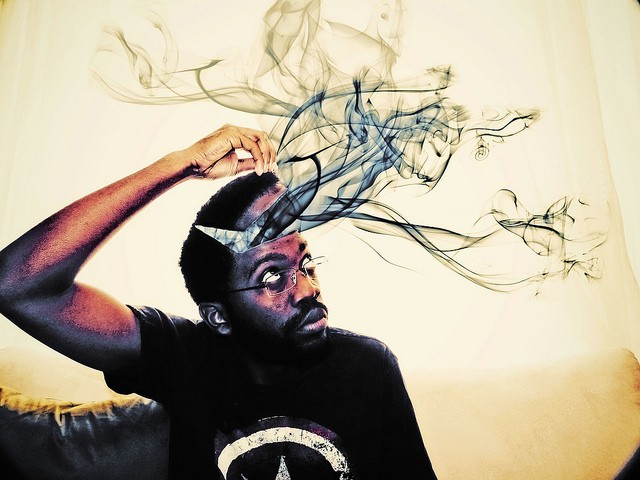To follow one’s heart is a beautiful ideal that speaks to the core of what it means to be human.
It points back to an original purity and inherent connection within the self (and to something beyond oneself) that we are all born with—yet many of us lose this connection as we fight to make our way and survive in this world.
Deep down, we all have a connection to the truth—the truth of what is important, the truth of what we are here for, the truth that we are so much more than these seemingly limited, individuated beings.
To follow one’s heart is to connect back to the source from which we originated—and to which we will one day return—so that we can walk the path that lies between these two poles with as much grace, compassion and wisdom as possible.
Following one’s heart also speaks to many of the struggles that we have in modern society, where we are so often pushed and pulled away from listening to ourselves.
Ironically, the concept of following one’s heart often gets co-opted, and can become conflated with conditioned ideas of freedom in modern Western culture—i.e. the idea of “doing what I want, when I want, how I want,” all under the banner of listening to oneself and following one’s heart. And yet, this is not truly freedom, nor is it following one’s heart—this is following the whims and desires of the ego, which themselves are often conditioned by societal and cultural constructs, our upbringing, as well as individual fears, insecurities and desires.
I have witnessed the phenomenon of these ideals being co-opted on many occasions, which is why I find it important to name and address.
We have a cultural shift occurring, with more and more people feeling the primacy and importance of listening to, and being true, to themselves, being authentic and doing what they feel is right, as opposed to following the culturally and socially conditioned ideals of what one “should” do, how one “should” live and so forth.
This is a beautiful change, and it has the ability to create an entire paradigm shift that creates a society based on growth, awakening and love. Yet precisely because these values are shifting, I often observe individuals using the language of these values without truly cultivating the underlying level of development for it to be meaningful, which in the end often leads to greater pain and suffering on all sides, rather than true growth and awakening.
We are all dynamic beings, with multiple aspects contributing to our individual experience of this lifetime. At the very least, we have physical, emotional, mental, spiritual, relational, professional and environmental aspects to our lived realities. At any given moment, any one of these aspects of self may come to the forefront and feel real, authentic, or be what we feel to be “true in our heart.”
Yet, if we pay attention to our experience over time, we start to see how these aspects change, how what we feel one moment can change into its opposite. If we choose to follow what we feel in any given moment, which may come from any of these different aspects of self, in the end we lose our integrity and create more issues in our experience and with those around us.
We become capricious, buffeted about by the winds of emotion, ego, suffering and insecurity. Eventually we lose authenticity and integrity, precisely because we lose our connection to something deeper than these individual aspects of self that are often in conflict with each other.
It can be pleasing to validate our words or actions by using terms such as “authentic” and “real,” or by saying that we are listening to ourselves, for it makes it seem somehow more inherently true and valuable, and it trumps any other viewpoints or considerations. Yet simply saying something is authentic or real does not necessarily make it so. In fact, if one thinks that their emotions or thoughts are “real,” this can actually hinder the ability to have meaningful interactions and experiences.
In the traditions of Buddhism and yoga, thoughts and emotions are seen as impermanent, passing experiences that often derive from conditioned states of being and past traumas. The work is to detach from thoughts and emotions, realizing that there is nothing inherently essential or absolute in them.
If we have not done the inner work of purification and realized that thoughts and emotions are not real in any kind of absolute sense, it can be easy to fall into the trap of listening to thoughts and emotions and believing that we are following our heart and being true to ourselves.
This is when we run the risk of simply giving free reign to the ego under the pretext of following something deeper or more transcendent, which can ultimately lead to narcissism and obsession with self-absorbed thoughts. In the end this can become a means to avoid taking responsibility for ourselves and how our words and actions impact others close to us—all under the guise of listening to oneself. For this reason, it is essential that we purify our hearts before following our hearts.
Yoga and meditation are wonderful tools to purify the self and to learn how to listen to, and follow, the heart. These practices can teach us to detach from our thoughts and feelings and to realize that they are not real.
When we detach from thoughts and feelings, and create space around them, we create a space of non-reaction, wherein we can hold our thoughts and feelings at the pivot of our being, neither pushing them down nor expressing them outwardly in a reactive manner, and thus allow them to be just as they are. As we sit with them, it becomes easier to see which thoughts and feelings come from our fears, insecurities and conditioned desires, and which stem from a deeper place of our current experience and what is both true and useful in the present moment. However, even here we must be careful, as it can be easy to fall into the trap of spiritual materialism—believing that precisely because we practice yoga or meditation what we feel is inherently more true or real, when in the early stages of practice it can simply be that our fears and insecurities are amplified louder.
Underneath all of the forces and aspects of self that are constantly vying for attention, there is a deeper aspect that both underlies and transcends the individual aspects. As we grow, and develop patience within ourselves, it becomes easier to see how transient each individual aspect can be, how influenced by our upbringing, society, culture, insecurities, and conditioning each aspect is. It is through developing a capacity for space, for acceptance of all aspects of self (even while denying them free reign to determine our words and actions), that one can develop the ability to act from a place that is beyond any individual aspect, and yet takes all of them into account.
This inner purification allows one to follow one’s heart in each moment, from a place of complete freedom—the freedom of being completely connected within oneself and with the world around oneself, without being governed by any single aspect, fear, or conditioning.
~
Author: Thomas Richardson
Image: jnyemb/Flickr
Editor: Caitlin Oriel







Read 8 comments and reply